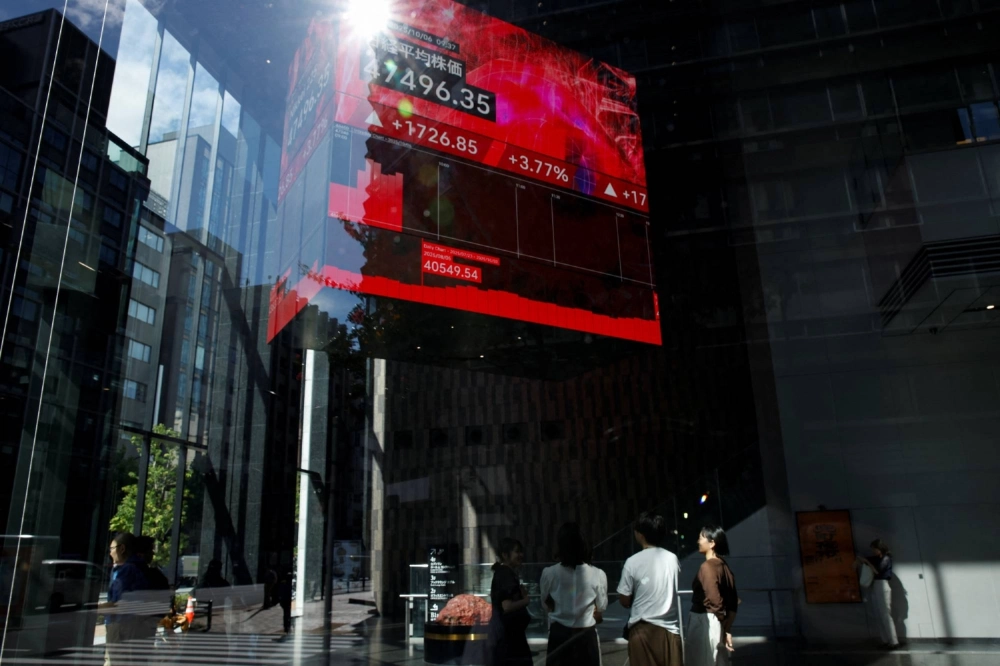Tokyo stocks barely eked out a gain on Tuesday as enthusiasm about Sanae Takaichi, who is likely to be Japan's next prime minister, started to wane.
The Nikkei 225 stock average finished the day up 0.01% after hitting a record — of 48,527.33 — shortly after the open and then spending the rest of the day retracing its way back to where it started.
Takaichi was elected Saturday to succeed Prime Minister Shigeru Ishiba as the Liberal Democratic Party’s president. She is likely to become prime minister next week.

















With your current subscription plan you can comment on stories. However, before writing your first comment, please create a display name in the Profile section of your subscriber account page.